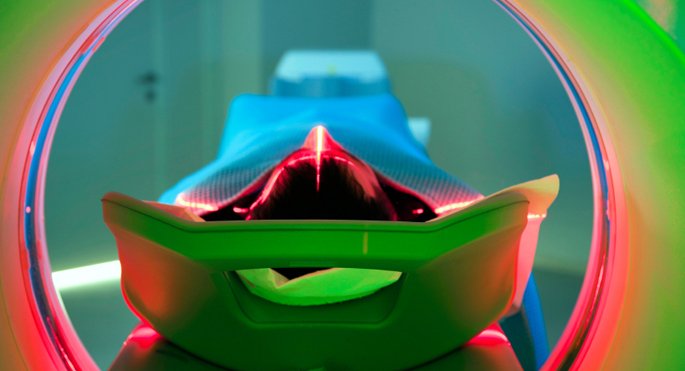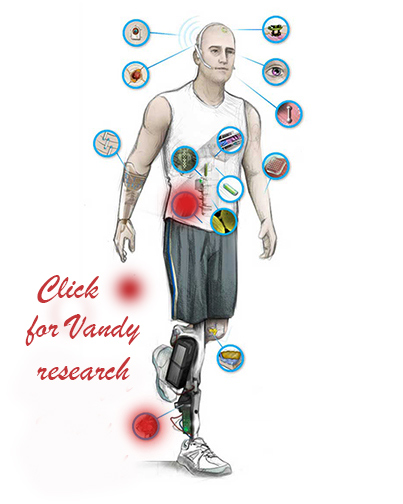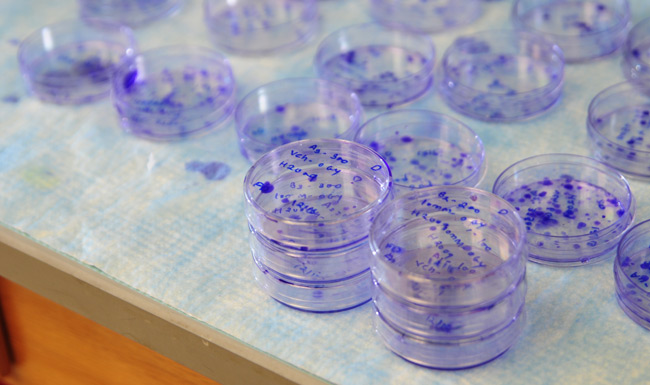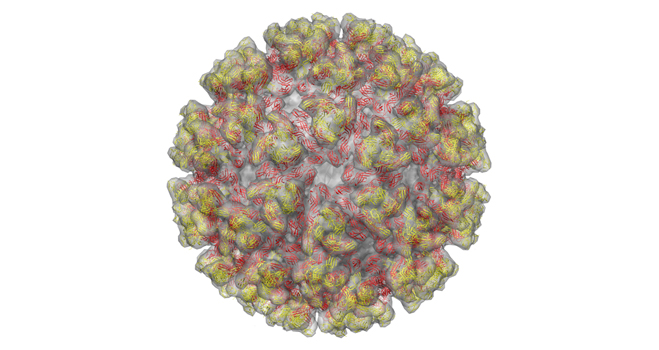Research
-

CaMKII enhances insulin secretion
The protein CaMKII acts as a calcium sensor in a positive feedback pathway that enhances glucose-stimulated insulin secretion. Read MoreMay 14, 2014
-

Normalizing calcium flux to treat atrial fibrillation
A particular anti-arrhythmia drug provides a targeted treatment for certain forms of atrial fibrillation. Read MoreMay 12, 2014
-

Bypassing DNA damage
Studies of a human polymerase that replicates DNA have provided a complete kinetic and structural framework for understanding how the enzyme accurately bypasses DNA damage. Read MoreMay 9, 2014
-

PET probe detects dying tumor cells
A novel PET imaging probe detects tumor cell death in vivo and could be useful for personalizing cancer medicine. Read MoreMay 8, 2014
-

Arne Duncan, Bill Haslam to address education writers at Vanderbilt
U.S. Secretary of Education Arne Duncan will be featured at the Education Writers Association’s annual gathering at Vanderbilt in May. Read MoreMay 7, 2014
-

Two Vanderbilt projects featured in new NIBIB “Bionic Man” web tool
The prosthetics research of Michael Goldfarb is featured in "The NBIB Bionic Man," an interactive web tool that helps students and the public learn about innovative federally-funded biomedical research. Read MoreMay 6, 2014
-

Research is shaping the undergraduate experience
According to a 2013 survey of graduating seniors, more than half did faculty-guided or independent research during their Vanderbilt careers. Read about five students for whom research has helped shape their undergraduate years. Read MoreMay 6, 2014
-

Cutting-edge research to be showcased in May
(Vanderbilt University) Potentially “game-changing” research at Vanderbilt University on infectious diseases, population health and health policy will be showcased during two interactive presentations May 15 and May 22. A segment of the Flexner Discovery Lecture Series, the new “Vanderbilt Cutting-edge Discovery” discussions are highlights of recent presentations… Read MoreMay 1, 2014
-

Potential mechanism for myeloma drug’s variable toxicity
A genetic variant is associated with toxicity of the chemotherapy drug melphalan, and could guide individualized dosing for the medication. Read MoreApr 30, 2014
-

Grissom receives foundation’s first 2014 external research award
Will Grissom, assistant professor of biomedical engineering, has been awarded the first External Research Award of 2014 from the Focused Ultrasound Foundation for his project titled “MR Temperature Imaging Toolbox for Focused Ultrasound Neurosurgery.” Read MoreApr 30, 2014
-

New undergraduate and faculty research collaborations inspire, inform
The Littlejohn Family Undergraduate Research Program enables Arts and Science undergraduates to conduct original research alongside faculty fellows. Read MoreApr 29, 2014
-

Regulators, private investors outpaced by algorithmic stock trading
Algorithms able to execute tens of thousands of trades in just fractions of a second are responsible for more than 70 percent of all equity trading volume in the United States. Read MoreApr 29, 2014
-

Should principal evaluations be based on student test scores?
Evaluating school principals based on student achievement date yields inaccurate and unfair results according to new study. Read MoreApr 28, 2014
-

Murry honored for HIV prevention research
Velma McBride Murry has been selected to receive the 2014 Community, Culture and Prevention Science Award by the Society for Prevention Research. Read MoreApr 28, 2014
-

How to create nanowires only three atoms wide with an electron beam
A Vanderbilt graduate student has used a focused beam of electrons to create some of the smallest nanowires ever made, which could bring us closer to flexible, paper-thin tablets and television displays. Read MoreApr 28, 2014
-

Prominent scientist, respected administrator Susan Wente named Vanderbilt provost and vice chancellor for academic affairs
After an extensive national search, Susan R. Wente has been named provost and vice chancellor for academic affairs, Chancellor Nicholas S. Zeppos announced today. Read MoreApr 28, 2014
-

Construction of new Engineering and Science Building at Vanderbilt set to begin May 2014
Vanderbilt University’s Board of Trust has approved the construction of a seven-story tower on campus as part of an effort to further strengthen the institution’s growing reputation as a major producer of intellectual leaders, entrepreneurs and innovators. Read MoreApr 28, 2014
-

Target cell entry to halt Chikungunya virus
Understanding how chikungunya virus binds to and enters cells offers a new target for antiviral medications. Read MoreApr 28, 2014
-

Increased cell permeability may protect from colitis
Having a “leaky” gut may protect against colitis, a paradoxical finding that alters understanding of the role of cell permeability in intestinal homeostasis and immune regulation. Read MoreApr 25, 2014
-

Restructuring congressional oversight would bring more influence to Congress
When Congress gets too many hands on an issue, its influence actually decreases, researchers from the Center for the Study of Democratic Institutions at Vanderbilt University found. Read MoreApr 24, 2014